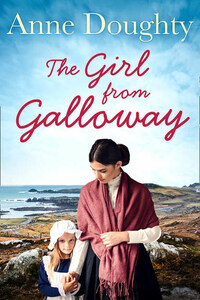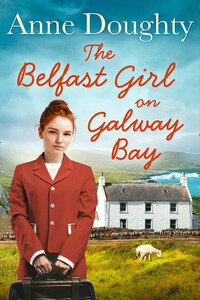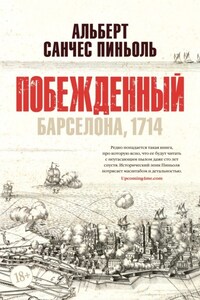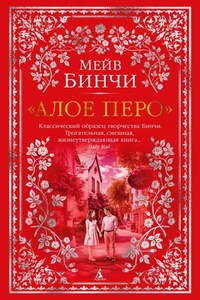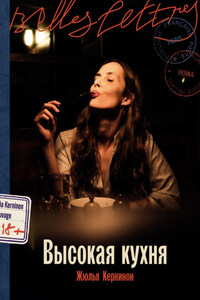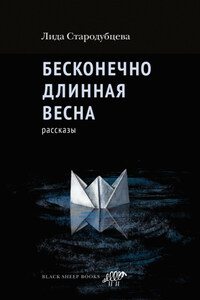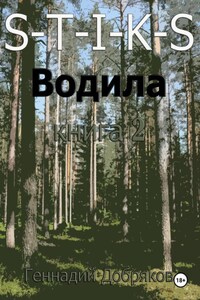ANNE DOUGHTY is the author of A Few Late Roses, which was nominated for the longlist of the Irish Times Literature Prizes. Born in Armagh, she was educated at Armagh Girls’ High School and Queen’s University, Belfast. She has since lived in Belfast with her husband.
‘This book was immensely readable, I just couldn’t put it down’
‘An adventure story which lifts the spirit’
‘I have read all of Anne’s books – I have thoroughly enjoyed each and every one of them’
‘Anne is a true wordsmith and manages to both excite the reader whilst transporting them to another time and another world entirely’
‘A true Irish classic’
‘Anne’s writing makes you care about each character, even the minor ones’
The Girl from Galloway
ANNE DOUGHTY
HQ
An imprint of HarperCollinsPublishers Ltd.
1 London Bridge Street
London SE1 9GF
First published in Great Britain by HQ in 2019
Copyright © Anne Doughty 2019
Anne Doughty asserts the moral right to be identified as the author of this work.
A catalogue record for this book is available from the British Library.
This novel is entirely a work of fiction. The names, characters and incidents portrayed in it are the work of the author’s imagination. Any resemblance to actual persons, living or dead, events or localities is entirely coincidental.
All rights reserved under International and Pan-American Copyright Conventions. By payment of the required fees, you have been granted the non-exclusive, non-transferable right to access and read the text of this e-book on-screen. No part of this text may be reproduced, transmitted, downloaded, decompiled, reverse engineered, or stored in or introduced into any information storage and retrieval system, in any form or by any means, whether electronic or mechanical, now known or hereinafter invented, without the express written permission of HarperCollins.
Source ISBN: 9780008330811
E-book Edition © March 2019 ISBN: 9780008328795
Version: 2019-02-20
In 1845 Ireland was ruled by Queen Victoria. Irish Members of Parliament went to London and represented all thirty-two Irish counties. The only internal divisions in Ireland were the ancient provinces: Ulster, Leinster, Munster and Connaught.
Donegal is the most northern and westerly county in the northern province of Ulster, which is made up of nine counties. Every schoolchild could recite them in geographical order: Armagh, Down, Antrim, Londonderry, Tyrone, Fermanagh, Donegal, Cavan and Monaghan.
Throughout the period of our story most people in all four provinces spoke Irish, unless they had come from Scotland or England in the first place. Many Irish speakers from Donegal went to Scotland each year to help with the harvest. There they learnt a second language, which they called Scotch, but we would call English.
Ardtur, County Donegal
April 1845
Hannah McGinley put down her sewing and moved across the tramped earth floor to where the door of the cottage stood open through all the daylight hours, except in the coldest and stormiest of weather. She stood on the well-swept door stone, looked up at the pale, overcast sky and ran her eye along the stone walls that enclosed their small patch of potato garden. Beyond the wall, the hawthorns partly masked the stony track, which ran down the mountainside.
There was no sign of them yet. No familiar figures walked, ran, or skipped up the narrow rocky path leading steeply up the mountainside from the broader track that ran along the lower contours of the mountain. Below that, the final, bush-filled slopes dropped more gently to the shore of Lough Gartan. The only movement she could detect in the deep quiet of the grey, late April afternoon were flickers of light reflected from the calm surface of the lake itself, just visible between the still-bare trees and the pale rise of smoke from the cottage of her nearest neighbour.
Dotted along the mountainside above the lake, clusters of cottages like Ardtur itself huddled together in the shelter of the mountain, its brooding shape offering some defence against the battering of westerly winds from the Atlantic, westerlies that brought both mildness and heavy rain to this rugged landscape.
She moved back to the hearth, hung the kettle over the glowing embers of the turf fire and took up her sewing again. She paused to push back a few strands of long, fair hair that had escaped from the ribbon with which she tied it firmly each morning. Touching the gleaming strands, she smiled to herself, thinking of her daughter. Rose was as dark as she herself was fair, her eyes and colouring so like Patrick, her husband, while Sam, a year younger, pale-skinned and red-haired, so closely resembled her father, Duncan Mackay, far away in Scotland where she had been born and grew up.
